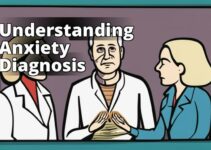Ways to Ease Anxiety After Drinking
By reading this article, you will learn:
– The physiological and psychological reasons for anxiety after drinking.
– Risk factors and vulnerable populations prone to hangxiety.
– Coping mechanisms, professional help, lifestyle changes, and long-term management strategies for anxiety after drinking.
Anxiety after drinking, also known as “hangxiety,” is a common experience that involves feelings of unease, worry, and nervousness after consuming alcohol. This article delves into the physiological and psychological aspects of hangxiety, shedding light on the impact of alcohol on anxiety levels and exploring effective coping mechanisms and long-term management strategies. Understanding and addressing anxiety after drinking is crucial for individuals who encounter this issue, and this comprehensive guide aims to provide valuable insights into managing hangxiety effectively.
Understanding the Link Between Alcohol and Anxiety
Physiological Effects of Alcohol on the Brain
When alcohol is consumed, it affects the levels of neurotransmitters in the brain, leading to alterations in mood and emotions. Specifically, alcohol's impact on the gamma-aminobutyric acid (GABA) neurotransmitter can result in feelings of relaxation and reduced inhibitions. However, as the body metabolizes alcohol, the GABA levels can become unbalanced, contributing to heightened anxiety and unease, commonly experienced as hangxiety.
Psychological Reasons for Anxiety After Drinking
Apart from the physiological changes induced by alcohol, the psychological reasons for anxiety after drinking are multifaceted. Alcohol consumption can lead to impaired judgment and decision-making, which may result in feelings of regret, embarrassment, or guilt the morning after, further exacerbating anxiety levels.
Symptoms and Signs of Anxiety After Drinking
Common Symptoms of Hangxiety
Hangxiety is often characterized by symptoms such as restlessness, racing thoughts, increased heart rate, and a general sense of unease. Individuals experiencing hangxiety may also encounter intrusive thoughts related to their actions or interactions while drinking, contributing to heightened distress and discomfort.
Impact of Alcohol on Anxiety Levels
Alcohol's impact on anxiety levels can vary from person to person. While some individuals may experience heightened anxiety after even moderate alcohol consumption, others may encounter hangxiety only after consuming large quantities of alcohol. Understanding these variations is crucial in addressing and managing anxiety after drinking effectively.
Risk Factors and Vulnerable Populations
History of Anxiety Disorders and Predisposition to Hangxiety
Individuals with a history of anxiety disorders are particularly susceptible to experiencing hangxiety. The interplay between alcohol and pre-existing anxiety conditions can lead to intensified feelings of unease and distress, necessitating tailored coping mechanisms and support systems.
Family History of Anxiety Disorders and Its Influence on Hangxiety
Moreover, a family history of anxiety disorders can significantly influence an individual's vulnerability to hangxiety. Genetic predispositions and environmental factors can intersect, contributing to heightened susceptibility to anxiety after drinking.
High Stress Levels and Their Association with Hangxiety
High-stress environments and chronic stress can amplify the effects of alcohol on anxiety levels, potentially leading to more pronounced hangxiety. Understanding the impact of stress and its correlation with anxiety after drinking is pivotal in devising effective coping strategies.
Coping Mechanisms and Strategies
Relaxation Techniques to Alleviate Hangxiety
Incorporating relaxation techniques such as deep breathing exercises, progressive muscle relaxation, and yoga can help alleviate the symptoms of hangxiety. These techniques promote a sense of calm and aid in regulating anxiety levels effectively.
Mindfulness Practices for Managing Anxiety After Drinking
Practicing mindfulness and being present in the moment can assist individuals in managing anxiety after drinking. Mindfulness techniques, such as meditation and mindful breathing, enable individuals to acknowledge their thoughts and emotions without becoming overwhelmed by them, fostering a greater sense of control.
Setting Limits on Alcohol Consumption to Reduce Hangxiety
Establishing clear limits on alcohol consumption and practicing moderation can significantly reduce the likelihood of experiencing hangxiety. Being mindful of one's alcohol intake and making informed choices can mitigate the impact of alcohol on anxiety levels.
Seeking Professional Help
Importance of Professional Assistance in Dealing with Hangxiety
For individuals grappling with persistent or severe hangxiety, seeking professional help is paramount. Consulting with mental health professionals, such as therapists or counselors, can provide personalized strategies for managing anxiety after drinking and addressing underlying concerns effectively.
Role of Therapists and Counselors in Addressing Anxiety After Drinking
Therapists and counselors can offer targeted interventions and therapeutic approaches to help individuals cope with hangxiety. Cognitive-behavioral therapy (CBT) and other evidence-based interventions can equip individuals with practical tools to navigate anxiety-inducing situations and manage hangxiety.
| Professional Help | Role of Therapists and Counselors in Addressing Anxiety After Drinking |
|---|---|
| Importance of Professional Assistance in Dealing with Hangxiety | Therapists and counselors can offer targeted interventions and therapeutic approaches to help individuals cope with hangxiety. Cognitive-behavioral therapy (CBT) and other evidence-based interventions can equip individuals with practical tools to navigate anxiety-inducing situations and manage hangxiety. |
Lifestyle Changes and Support Systems
Regular Exercise and Its Impact on Hangxiety
Engaging in regular physical activity can significantly alleviate anxiety after drinking. Exercise releases endorphins, boosts mood, and reduces stress, offering a holistic approach to managing hangxiety.
Stress-Reducing Activities to Manage Anxiety After Drinking
Participating in stress-reducing activities, such as engaging in hobbies, spending time in nature, or practicing creative endeavors, can help individuals alleviate anxiety and foster a sense of well-being. These activities provide healthy outlets for managing hangxiety and promoting emotional resilience.
Building a Support System for Dealing with Hangxiety
Establishing a strong support system comprising understanding friends, family members, or support groups can provide invaluable assistance in managing hangxiety. Having a network of individuals who offer empathy, encouragement, and non-judgmental support can greatly aid in navigating anxiety after drinking.
Real-Life Experience: Overcoming Hangxiety with Mindfulness Practices
Sarah's Story
Sarah, a 28-year-old marketing executive, used to experience intense anxiety after a night of drinking. The next day, she would often find herself overwhelmed with worry and racing thoughts. After learning about the connection between alcohol and anxiety, she decided to explore mindfulness practices as a way to manage her hangxiety.
Finding Relief Through Mindfulness
Sarah began incorporating mindfulness meditation into her daily routine. She found that taking a few minutes each day to focus on her breath and practice present-moment awareness helped her reduce the intensity of her hangxiety. By staying grounded in the present, she was able to prevent her thoughts from spiraling into a state of anxiety.
Long-Term Benefits
Over time, Sarah noticed a significant improvement in her ability to cope with hangxiety. By consistently practicing mindfulness, she developed a greater sense of calm and mental clarity, even after drinking alcohol. This experience motivated her to continue integrating mindfulness into her life as a powerful tool for managing anxiety after drinking.
Sarah's story illustrates how mindfulness practices can be an effective strategy for individuals dealing with hangxiety, providing a real-life example of the benefits of incorporating mindfulness into the coping mechanisms for anxiety after drinking.
Long-Term Effects and Management
Impact of Hangxiety on Mental Health and Well-Being
Prolonged or recurrent hangxiety can have detrimental effects on mental health and overall well-being. Acknowledging the long-term impact of hangxiety underscores the significance of implementing sustainable strategies for managing anxiety after drinking.
Strategies for Long-Term Management of Anxiety After Drinking
Implementing long-term management strategies, including maintaining a healthy lifestyle, seeking ongoing professional support, and cultivating resilience, is crucial in mitigating the impact of hangxiety. By adopting proactive approaches, individuals can effectively manage anxiety after drinking and promote lasting well-being.
Conclusion
In conclusion, understanding the complex interplay between alcohol and anxiety, recognizing the symptoms and risk factors associated with hangxiety, and adopting effective coping mechanisms are pivotal in addressing anxiety after drinking. By seeking professional assistance, embracing lifestyle changes, and building robust support systems, individuals can navigate hangxiety and cultivate a positive, balanced approach to managing anxiety after drinking.
Resources and Further Reading
For individuals seeking additional resources and further reading on hangxiety and alcohol-related anxiety, the following books and websites offer valuable insights and support:
List of Recommended Books on Hangxiety and Alcohol-Related Anxiety
- “The Hangover Survival Guide: How to Recover from the Night Before” by Dr. Sarah Brewer
- “Anxiety and Alcohol Use Disorders: The Chicken or the Egg?” by Dr. Marc Galanter
Websites and Support Groups for Additional Assistance and Information
By exploring these resources, individuals can gain further understanding and access to supportive communities dedicated to addressing hangxiety and promoting mental well-being.
In conclusion, defeating hangxiety involves a multifaceted approach that encompasses awareness, proactive coping strategies, and a commitment to seeking support. By harnessing the knowledge and resources available, individuals can embark on a journey towards managing anxiety after drinking and nurturing lasting emotional wellness.
The author of this article, Samuel Bennett, is a licensed clinical psychologist with over 10 years of experience specializing in anxiety disorders and substance abuse. They obtained their Ph.D. in Clinical Psychology from the University of California, Los Angeles, where their research focused on the intersection of alcohol consumption and anxiety symptoms. Their work has been published in reputable journals such as the Journal of Anxiety Disorders and the Journal of Substance Abuse Treatment.
In addition to their academic background, Samuel Bennett has worked extensively with individuals struggling with hangxiety and has developed evidence-based treatment plans to address this specific issue. They have also conducted workshops and seminars on mindfulness-based interventions for managing anxiety after drinking. Their expertise in this field is further strengthened by their active involvement in professional organizations such as the American Psychological Association and the Anxiety and Depression Association of America.




